Courtesy of The Automatic Earth.
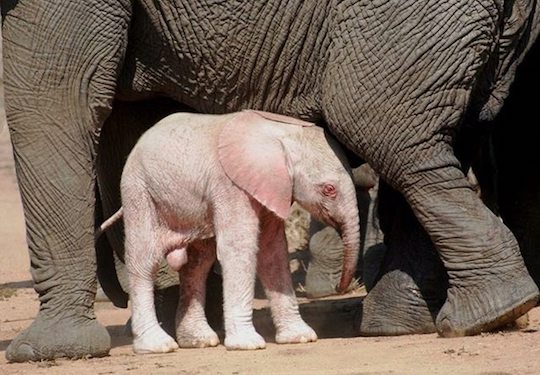
Caters Extremely rare albino elephant, Kruger National Park in South Africa
Everything dies, baby, that’s a fact
But maybe everything that dies someday comes back …
Springsteen, Atlantic City

“Erwin Schrodinger (1945) has described life as a system in steady-state thermodynamic disequilibrium that maintains its constant distance from equilibrium (death) by feeding on low entropy from its environment – that is, by exchanging high-entropy outputs for low-entropy inputs. The same statement would hold verbatium as a physical description of our economic process. A corollary of this statement is that an organism cannot live in a medium of its own waste products.”
Herman Daly and Kenneth Townsend

What drives our economies is waste. Not need, or even demand. Waste. 2nd law of thermodynamics. It drives our lives, period.
First of all, don’t tell me you’re trying to stop the ongoing extinction of nature and wildlife on this planet, or the destruction of life in general. Don’t even tell me you’re trying. Don’t tell me it’s climate change that we should focus on (that’s just a small part of the story), and you’re driving an electric car and you’re separating your trash or things like that. That would only mean you’re attempting to willfully ignore your share of destruction, because if you do it, so will others, and the planet can’t take anymore of your behavior.
This is the big one. And the only ones amongst us who don’t think so are those who don’t want to. Who think it’s easier to argue that some problems are too big for them to tackle, that they should be left to others to solve. But why should we, why should anyone, worry about elections or even wars, when it becomes obvious we’re fast approaching a time when such things don’t matter much anymore?
The latest WWF Living Planet Report shows us that the planet is a whole lot less alive than it used to be. And that we killed that life. That we replaced it with metal, bricks, plastic and concrete. Mass consumption leads to mass extinction. And that is fully predictable, it always was; there’s nothing new there.
We killed 58% of all vertebrate wildlife just between 1970 and 2012, and at a rate of 2% per year we will have massacred close to 70% of it by 2020, just 4 years from now. So what does it matter who’s president of just one of the many countries we invented on this planet? Why don’t we address what’s really crucial to our very survival instead?
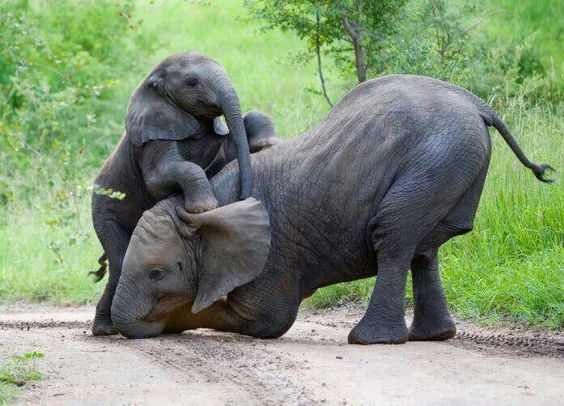
The latest report from the WWF should have us all abandon whatever it is we’re doing, and make acting to prevent further annihilation of our living world the key driver in our everyday lives, every hour of every day, every single one of us. Anything else is just not good enough, and anything else will see us, that self-nominated intelligent species, annihilated in the process.
Granted, there may be a few decrepit and probably halfway mutant specimens of our species left, living in conditions we couldn’t even begin, nor dare, to imagine, with what will be left of their intelligence wondering how our intelligence could have ever let this happen. You’d almost wish they’ll understand as little as we ever did; that some form of ignorance equal to ours will soften their pain.
It’s important to note that the report does not describe a stagnant situation, there’s no state of affairs, not something still, it describes an ongoing and deteriorating process. That is, we don’t get to choose to stop the ongoing wildlife annihilation at 70%; we are witnessing, and indeed we are actively involved in, raising that number by 2% every year that we ‘live’ (can we even call it that anymore, are you alive when you murder all life around you?) in this world.
This is our only home.
Without the natural world that we were born into, or rather that our species, our ancestors, were born into, we have zero chance of survival. Because it is the natural world that has allowed for, and created, the conditions that made it possible for mankind to emerge and develop in the first place. And we are nowhere near making an earth 2.0; the notion itself is preposterous. A few thousand years of man ‘understanding’ his world is no match for billions of years of evolution. That’s the worst insult to whatever intelligence it is that we do have.
Much has been made through the years of our ability to adapt to changing circumstances, and much of that is just as much hubris as so much of what we tell ourselves, but the big question should be WHY we would volunteer to find out to what extent we can adapt to a world that has sustained the losses we cause it to suffer. Even if we could to a degree adapt to that, why should we want to?
Two thirds of our world is gone, and it’s we who have murdered it, and what’s worse – judging from our lifestyles- we seem to have hardly noticed at all. If we don’t stop what we’ve been doing, this can lead to one outcome only: we will murder ourselves too. Our perhaps biggest problem (even if we have quite a few) in this regard is our ability and propensity to deny this, as we deny any and all -serious, consequential- wrongdoing.
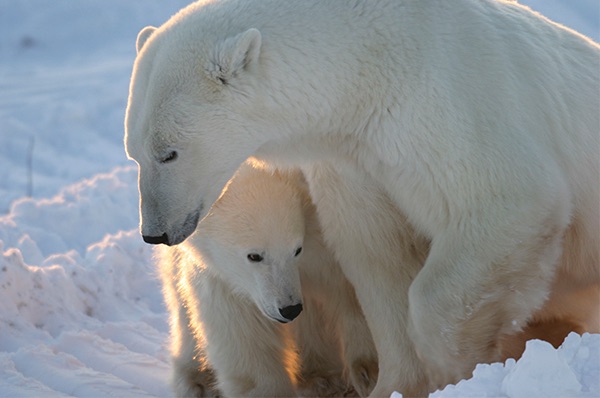
There are allegedly serious and smart people working on, dreaming of, and getting billions in subsidies for, fantasies of human colonies on Mars. This is advertized as a sign of progress and intelligence. But that can only be true if we can acknowledge that our intelligence and our insanity are identical twins. Because it is insane to destroy the planet on which we depend one-on-one for everything that allows us to live, and at the same time dream of human life on another planet.
While I see no reason to address the likes of King of Subsidies Elon Musk, Stephen Hawking is different. Unfortunately, in Hawking’s case, with all his intelligence, it’s his philosophical capacity that goes missing.
Humanity Will Not Survive Another 1,000 Years If We Don’t Escape Our Planet
Professor Stephen Hawking has warned humanity will not survive another 1,000 years on Earth unless the human race finds another planet to live on. [..] Professor Hawking, 74, reflected on the understanding of the universe garnered from breakthroughs over the past five decades, describing 2016 as a “glorious time to be alive and doing research into theoretical physics”. “Our picture of the universe has changed a great deal in the last 50 years and I am happy if I have made a small contribution,“ he went on.
”The fact that we humans, who are ourselves mere fundamental particles of nature, have been able to come this close to understanding the laws that govern us and the universe is certainly a triumph.” Highlighting “ambitious” experiments that will give an even more precise picture of the universe, he continued: “We will map the position of millions of galaxies with the help of [super] computers like Cosmos. We will better understand our place in the universe.”
“But we must also continue to go into space for the future of humanity. I don’t think we will survive another 1,000 years without escaping beyond our fragile planet.”
The tragedy is that we may have gained some knowledge of natural laws and the universe, but we are completely clueless when it comes to keeping ourselves from destroying our world. Mars is an easy cop-out. But Mars doesn’t solve a thing. Because it’s -obviously- not the ‘fragile planet’ earth that is a threat to mankind, it’s mankind itself. How then can escaping to another planet solve its problems?
What exactly is wrong with saying that we will have to make it here on planet earth? Is it that we’ve already broken and murdered so much? And if that’s the reason, what does that say about us, and what does it say about what we would do to a next planet, even provided we could settle on it (we can’t) ? Doesn’t it say that we are our own worst enemies? And doesn’t the very idea of settling the ‘next planet’ imply that we had better settle things right here first? Like sort of a first condition before we go to Mars, if we ever do?
In order to survive, we don’t need to escape our planet, we need to escape ourselves. Not nearly as easy. Much harder than escaping to Mars. Which already is nothing but a pipedream to begin with.
Moreover, if we can accept that settling things here first before going to Mars is a prerequisite for going there in the first place, we wouldn’t need to go anymore, right?
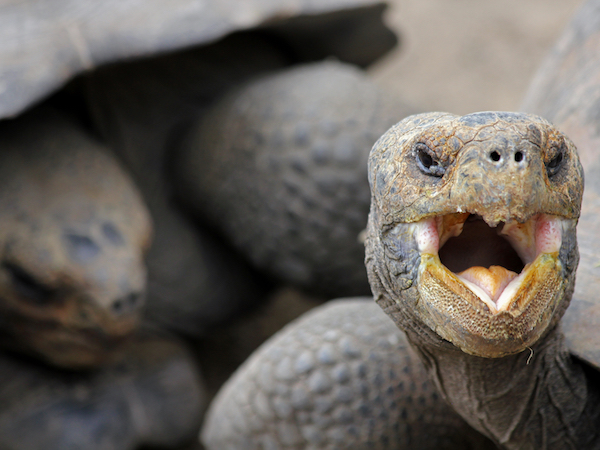
We treat this entire extinction episode as if it’s something we’re watching from the outside in, as if it’s something we’re not really a part of. I’ve seen various undoubtedly very well-intentioned ‘green people’, ‘sustainable people’, react to the WWF report by pointing to signs that there is still hope, pointing to projects that reverse some of the decline, chinook salmon on the North American Pacific coast, Malawi farmers that no longer use chemical fertilizers, a giant sanctuary in the Antarctic etc.
That, too, is a form of insanity. Because it serves to lull people into a state of complacency that is entirely unwarranted. And that can therefore only serve to make things worse. There is no reversal, there is no turnaround. It’s like saying if a body doesn’t fall straight down in a continuous line, it doesn’t fall down at all.
The role that green, sustainability, conservationist groups play in our societies has shifted dramatically, and we have failed completely to see this change (as have they). These groups have become integral parts of our societies, instead of a force on the outside warning about what happens within.
Conservationist groups today serve as apologists for the havoc mankind unleashes on its world: all people have to do is donate money at Christmas, and conservation will be taken care of. Recycle a few bottles and plastic wrappings and you’re doing your part to save the planet. It is utterly insane. It’s as insane as the destruction itself. It’s denial writ large, and in the flesh.
It’s not advertized that way, but that doesn’t mean it’s not how it works. Saying that ‘it’s not too late’ is not a call to action as many people continue to believe. It’s just dirt poor psychology. It provides people with the impression, which rapidly turns into an excuse, that there is still time left. As almost 70% of all vertebrates, those animals that are closest to us, have disappeared. When would they say time is up? At 80%, 90%?
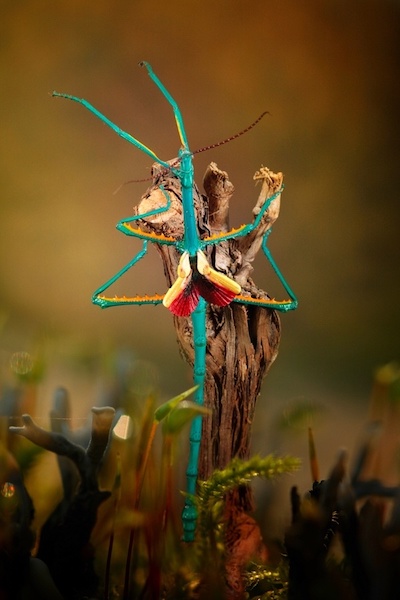
We do not understand why, or even that, we are such a tragically destructive species. And perhaps we can’t. Perhaps that is where our intelligence stops, at providing insight into ourselves. Even the most ‘aware’ amongst us will still tend to disparage their own roles in what goes on. Even they will make whatever it is they still do, and that they know is hurtful to the ecosystem, seem smaller than it is.
Even they will search for apologies for their own behavior, tell themselves they must do certain things in order to live in the society they were born in, drive kids to school, yada yada. We all do that. We soothe our consciences by telling ourselves we mean well, and then getting into our cars to go pick up a carton of milk. Or engage in an equally blind act. There’s too many to mention.
Every species that finds a large amount of free energy reacts the same way: proliferation. The unconscious drive is to use up the energy as fast as possible. If only we could understand that. But understanding it would get in the way of the principle itself. The only thing we can do to stop the extinction is for all of us to use a lot less energy. But because energy consumption provides wealth and -more importantly- political power, we will not do that. We instead tell ourselves all we need to do is use different forms of energy.
Our inbuilt talent for denying and lying (to ourselves and others) makes it impossible for us to see that we have an inbuilt talent for denying and lying in the first place. Or, put another way, seeing that we haven’t been able to stop ourselves from putting the planet into the dismal shape it is in now, why should we keep on believing that we will be able to stop ourselves in the future?
Thing is, an apology for our own behavior is also an apology for everyone else’s. As long as you keep buying things wrapped in plastic, you have no right, you lose your right, to blame the industry that produces the plastic.
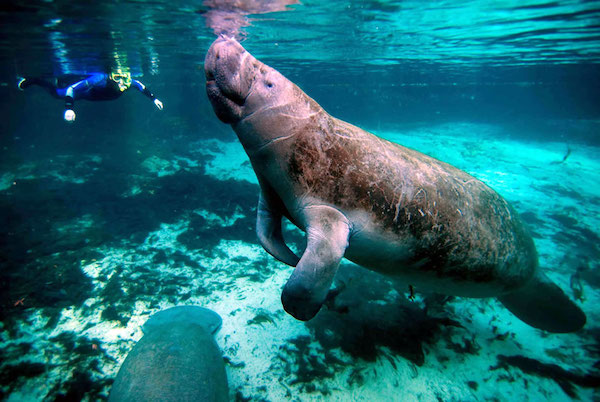
We see ourselves as highly intelligent, and -as a consequence- we see ourselves as a species driven by reason. But we are not. Which can be easily demonstrated by a ‘reverse question’: why, if we are so smart, do we find ourselves in the predicament of having destroyed two thirds of our planet?
Do we have a rational argument to execute that destruction? Of course not, we’ll say. But then why do we do it if rationality drives us? This is a question that should forever cure us of the idea that we are driven by reason. But we’re not listening to the answer to that question. We’re denying, we’re even denying the question itself.
It’s the same question, and the same answer, by the way, that will NOT have us ‘abandon whatever it is we do’ when we read today that 70% of all wildlife will be gone by 2020, that 58% was gone by 2012 and we destroy it at a rate of 2% per year. We’re much more likely to worry much more about some report that says returns on our retirement plans will be much lower than we thought. Or about the economic growth that is too low (as if that is possible with 70% of wildlife gone).
After all, if destroying 70% of wildlife is not enough for a call to action, what would be? 80%? 90? 99%? I bet you that would be too late. And no, relying on conservationist groups to take care of it for us is not a viable route. Because that same 70% number spells out loud and clear what miserable failures these groups have turned out to be.
We ‘assume’ we’re intelligent, because that makes us feel good. Well, it doesn’t make the planet feel good. What drives us is not reason. What drives us is the part of our brains that we share in common with amoeba and bacteria and all other more ‘primitive forms of life, that gobbles up excess energy as fast as possible, in order to restore a balance. Our ‘rational’, human, brain serves one function, and one only: to find ‘rational’ excuses for what our primitive brain has just made us do.
We’re all intelligent enough to understand that driving a hybrid car or an electric car does nothing to halt the havoc we do to our world, but there are still millions of these things being sold. So perhaps we could say that we’re at the same time intelligent enough, and we’re not.
We can see ourselves destroying our world, but we can not stop ourselves from continuing the destruction. Here’s something I wrote 5 years ago:
We have done exactly the same that any primitive life form would do when faced with a surplus, of food, energy, and in our case credit, cheap money. We spent it all as fast as we can. Lest less abundant times arrive. It’s an instinct, it comes from our more primitive brain segments, not our more “rational” frontal cortex. It’s not that we’re in principle, or talent, more devious or malicious than more primitive life forms. It’s that we use our more advanced brains to help us execute the same devastation our primitive brain drives us to, but much much worse.
That’s what makes us the most tragic species imaginable. We’ll fight each other, even our children, over the last few scraps falling off the table, and kill off everything in our path to get there. And when we’re done, we’ll find a way to rationalize to ourselves why we were right to do so. We can be aware of watching ourselves do what we do, but we can’t help ourselves from doing it. Most. Tragic. Species. Ever.
The greatest miracle you will ever see, that you could ever hope to see, is so miraculous you can’t even recognize it for what it is. We don’t know what the word beautiful means anymore. Or the word valuable. We’ve lost all of that, and are well on our way, well over 70% of it, to losing the rest too.
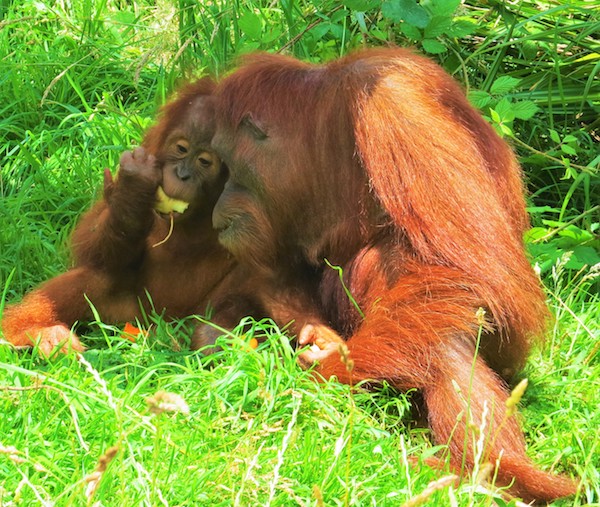

PS Please note I could not gather all sources for all pictures here, but I’d be more than happy to add them. It’s not that I don’t recognize the effort that goes into them; it’s an emotional thing.




